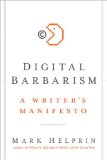I remember clearly the morning in May when, through the marvels of Google’s search technology, I detected that one of my blog articles had been stolen by a website in Asia that I never previously heard of. I may have been outraged but I was hardly shocked by the incident, at least not at first.
This was not the first time that I detected such an unauthorized theft, but it ended up being the most shocking. Not only did the offender steal the writing but he also replaced the affiliate links to Amazon.com that were part of the article with links to his own affiliate identifier, thereby stealing not only my writing but whatever small commissions I may have earned. I also observed with irony the fact that the site was dedicated to the study of Warren Buffett, a capitalist whose unparalleled sense of ethics apparently failed to rub off on the rogue website operator. He has not repented. On this day, the rogue site contains a verbatim copy of a subscriber only Wall Street Journal story that appeared today among other copyrighted content. When contacted in May, the rogue publisher did not appear to show any signs that he understood the concept of copyrighted property.
Scarred in my small way by this incident, and having long understood the critical role of copyright in our economy, I decided to read Mark Helprin’s new book, Digital Barbarism: A Writer’s Manifesto. Although I had not previously read any of Mr. Helprin’s novels, I was vaguely aware of his credentials in the conservative movement including his speech writing for Bob Dole’s presidential campaign. I anticipated that the book would contain an eloquent defense of copyright and private property that could persuade the many misguided individuals who today believe that intellectual property of all kinds is selfish, immoral, anti-social, or worse.
Mr. Helprin does indeed make an eloquent defense of copyright and it is unlikely that those who generally share his political and economic views would find much to disagree with in his book. Indeed, the book is often highly entertaining in his description of opponents of copyright; at least it is entertaining if you are not the targets, who in many cases are stereotyped. Here is one example where he describes the revolutionaries whose actions “in a decade or two [threaten] to dissolve the accomplishments of millennia…”:
It produces mouth-breathing morons in backwards baseballs caps and pants that fall down; Slurpee-sucking geeks who seldom see daylight; pretentious and earnest hipsters who want you to wear bamboo socks so the world won’t end; women who have lizard tattoos winding from the navel to the nape of the neck; beer-drinking dufuses who pay to watch noisy cars driving around in a circle for eight hours at a stretch; … What hath God wrought, and why didn’t He stop with the telegraph?
Hey! Watch what you say about NASCAR, pal! One gets the sense that Mr. Helprin has been traumatized by an evening stroll along the boardwalk in Ocean City.
In all seriousness, Mr. Helprin is not a luddite and clearly admires the possibilities for technology. He presents an elegant case for extension of copyright protections and an intellectual framework in which one can clearly defend the equivalence of intellectual and physical property as deserving of protection from theft. He even makes numerous references to Thomas Jefferson, who happens to be my favorite President, and apparently owns a home from which Monticello can be seen in the distance.
If Mr. Helprin’s goal was to convince people like me, who already broadly agree with his political and economic views, of the merits of his argument, he probably succeeded. But this seems like a low bar to clear. If his goal was to convince his opponents, I would guess that few of the “morons” and “idiots” who he mercilessly refers to throughout the book would endure far enough to appreciate his arguments. One gets the distinct impression that the book was an exercise in very sophisticated “venting”. This is unfortunate because the power of the ideas expressed in the book, absent the rather juvenile attacks on his opponents, had the power to persuade and are now diminished.
For those who are skeptical about purchasing this book based on my review, I would urge you to refrain from violating Mr. Helprin’s copyright by obtaining the text illegally and instead proceed to borrow the book from your local library.

